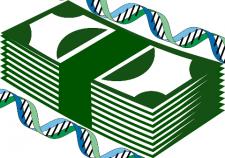In science, follow the money – if you can
By Paul D. Thacker & Curt Furberg,
The Los Angeles Times
| 05. 12. 2016
Untitled Document
In science as in politics, most people agree that transparency is essential. Top journals now require authors to disclose their funding sources so that readers can judge the possibility of bias, and the British Medical Journal recently required authors to disclose their data as well so that experts can run independent analyses of the results. But as transparency becomes the standard, many academics are resisting the trend without pushback from their universities.
After researcher Wei-Hock Soon of the Harvard-Smithsonian Center for Astrophysics was caught taking money from fossil fuel companies while claiming that climate change is not happening, the Smithsonian Institution revised its disclosure rules this April. Days later, Soon received $65,000 from Donors Trust, an organization that funnels anonymous contributions to conservative causes. According to the Guardian newspaper, Donors Trust has dispensed nearly $120 million to more than 100 groups casting doubt on climate science. Harvard-Smithsonian declined to explain why Soon received the money, and said that simply acknowledging his ties to Donors Trust allows Soon to meet ethical standards.
It's not hard to find examples of...
Related Articles
By Emma McDonald Kennedy
| 11.24.2024
Gig work in childcare, nursing, and transportation; non-invasive prenatal testing; gene editing; and space expeditions can all be attributed to one mistaken, pervasive assumption: that “we can innovate our way out of the thorniest problems, including reproductive ones” (22). In Reproductive Labor and Innovation: Against the Tech Fix in an Era of Hype, feminist political theorist Jennifer Denbow demonstrates why the U.S. has put so much of its hopes, and its money, on technological “innovations”––and why that hasn’t addressed...
By Arwa Mahdawi, The Guardian | 11.19.2024
Photo "Elon Musk Presenting Tesla's Fully Autonomous Future" by Steve Jurvetson on Flickr (CC BY-NC-SA 2.0)
Is Elon Musk the dinner party guest from hell? It sure seems that way. Not only is the man desperate for people to...
By Colette Shade, The New Republic | 11.14.2024
Photo "Elon Musk" by Daniel Oberhaus on Flickr (CC BY-NC-SA 2.0)
Would Donald Trump have won reelection if not for the backing of the world’s richest man? We’ll never know. But that man, Elon Musk, gave Trump more than $130...
By Carter Sherman, The Guardian | 11.17.2024
The anti-abortion movement is ready for its comeback in 2025.
With the return of Donald Trump to the White House, complete with a Republican-dominated Congress, anti-abortion groups are unfurling ambitious lists of policies they hope to see ...




